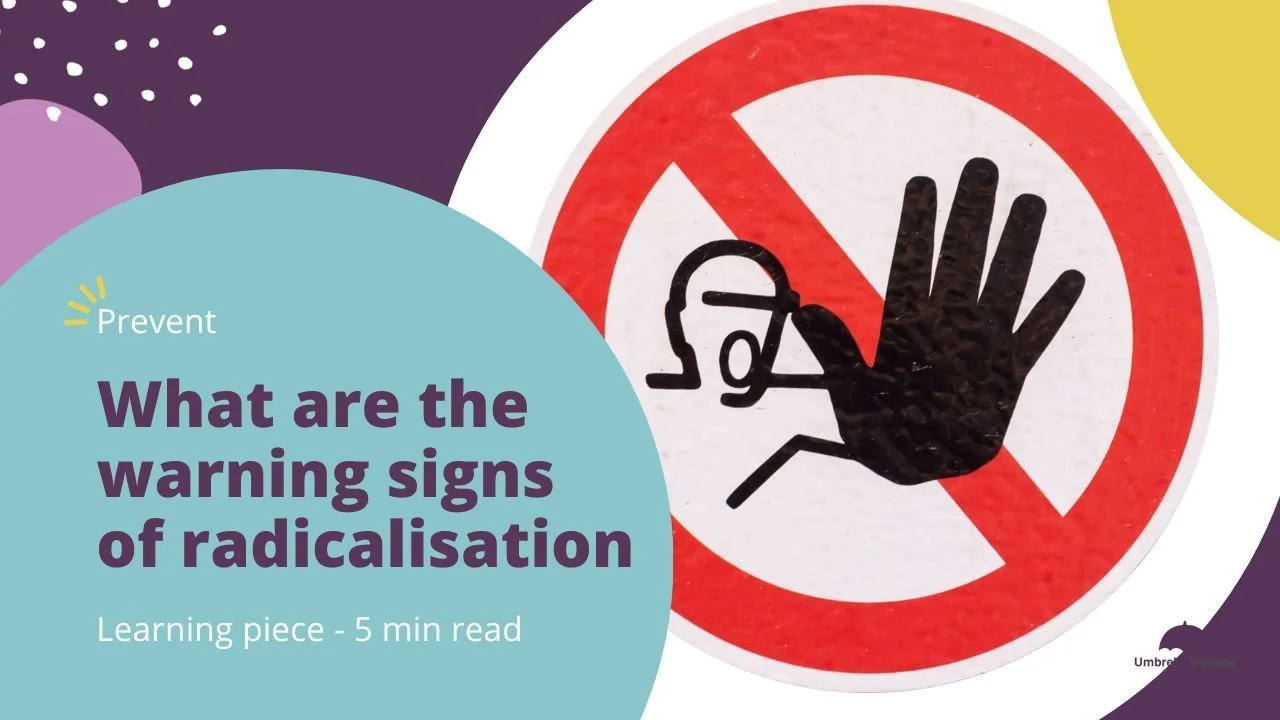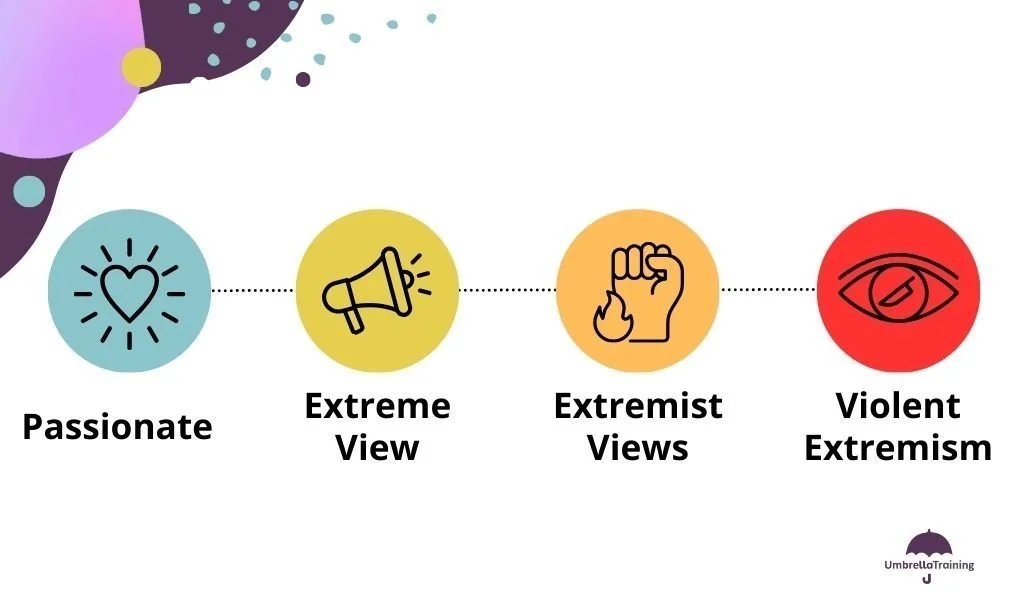The Prevent Duty: Raising Awareness of Radicalisation and Terrorism
What are the warning signs of radicalisation?
Have you ever felt passionate about something? Normally there is nothing wrong with having a strong emotion about something that you are excited about or feel a close connection to, but if that feeling starts to isolate you from friends and family or cause you to want to start taking threatening or harmful action towards others, this is seen as extreme behaviour that can lead to radicalisation.
No one just jumps into terrorism. It is often nurtured and grown over time and can present signs and behaviours. It can start with extremism which is a “vocal or active opposition to fundamental British Values.”
British Values underpin what it is to be a citizen in a modern and diverse Great Britain, valuing our community and celebrating the diversity of the UK and is part of all further education curricula. These values are:
Democracy
Rule of Law
Mutual Respect and Tolerance
Individual Liberty
British culture is built upon the values of freedom and equality, where everyone is aware of their rights and responsibilities and those of others and respects them. An example of this is understanding that we all don’t share the same beliefs and values whilst respecting the values, ideas and beliefs of others while not imposing our own on others (Tolerance). Going against these values can be a sign that someone might be expressing extremist views.
This interest in extreme behaviour can often be exploded by those wanting to recruit people on the path of terrorism. They can do this by:
Using someone's natural curiosity to gradually expose them to extremist content/material or question what they know
Developing a friendship, taking the time to establish a relationship of trust whilst isolating them from friends and family
Provide a safe space for them with a sense of identity and belonging whilst insisting that they keep this secret from others.
When some express extremist views, they can also start to move towards radicalisation. Radicalisation is “the process of how a person comes to support extremism and terrorism”.
There is no single route to radicalisation. It can happen over a long period or is sometimes triggered by a specific incident or news item and can happen quickly. There are behaviours that are often shown when someone is on the path of radicalisation both online and in person.
Online behaviour
Accessing extremist online content
Sympathetic to extremist ideologies and groups
Joining or trying to join an extremist organisation
Changing online identity
Outward appearance
Not listening to other points of view
Abusive towards people who are different
Embracing conspiracy theories
Feeling persecuted
Changing friends and appearance
Converting to a new religion
Being secretive of movements
Increasingly argumentative
Distancing themselves from old friends
No longer doing things they used to enjoy
Challenging extremism
Prevent deals with all kinds of terrorist threats to the UK. The UK government set up ‘The Prevent Duty’ with the aim to stop people from becoming terrorists or supporting terrorism. Prevent also extends to supporting the rehabilitation and disengagement of those already involved in terrorism.
Prevent’s first objective is to tackle the ‘ideological causes’ of terrorism. The ideological component of terrorism is what sets it apart from other acts of serious violence.
The Prevent duty is intended to stop everyone, including apprentices from being drawn into extremism and terrorist-related ideologies.
The online space and the influence this has on our daily lives means that we are now receiving our news in many different ways, such as through social media posts, online news outlets, and digital apps and platforms. Misinformation (unintentionally false and inaccurate information) and disinformation (deliberately false and inaccurate information) often become more prevalent when significant events occur around the world and gain news coverage.
It’s important that you direct your apprentices towards trusted news sources where possible.
Umbrella Training will support their development of strong media literacy skills, such as critical analysis and critical thinking as well as imbedding the importance of British values. This will help to equip them with the ability to identify the difference between fact and opinion and understand when media content surrounding conflict is encouraging particular beliefs and biases.
Another way you can support is by calmy challenging comments made by an apprentice that could be regarded as extremist. Encourage the apprentices to consider:
What they have said
Where those views have come from
Do they have evidence to prove what they have expressed is accurate and full
Have they considered any alternative views or interpretations
If you have real concerns about the behaviour of the apprentice, you may need to make a referral to the designated safeguarding lead. Everyone can help challenge extremist narratives through discussions both in and outside the classroom sessions.
For example, if you hear an apprentice talking during their shift about views that are making others uncomfortable or refusing to work with someone based on gender or race, it should be challenged in the correct manner. Always check your policies and provider’s policies or call Umbrella Training DSO who will advise and help.
What should I do if I have a concern about someone?
If you are concerned someone is being radicalised, you should follow your workplace or education providers’ safeguarding procedure. This includes discussing any concerns with our designated safeguarding lead
For additional support, you can:
Speak with your local/regional Prevent coordinator
Speak to Umbrella Training DSL
Contact your local police or dial 101 (the non-emergency police number)
For advice:
Call the Department for Education counter-extremism helpline on 020 7340 7264
Or email counter.extremism@education.gov.uk
If you think someone is in immediate danger, or if you see or hear something that may be terrorist-related:
Trust your instincts and call 999
Or call the confidential Anti-Terrorism Hotline on 0800 789 321





